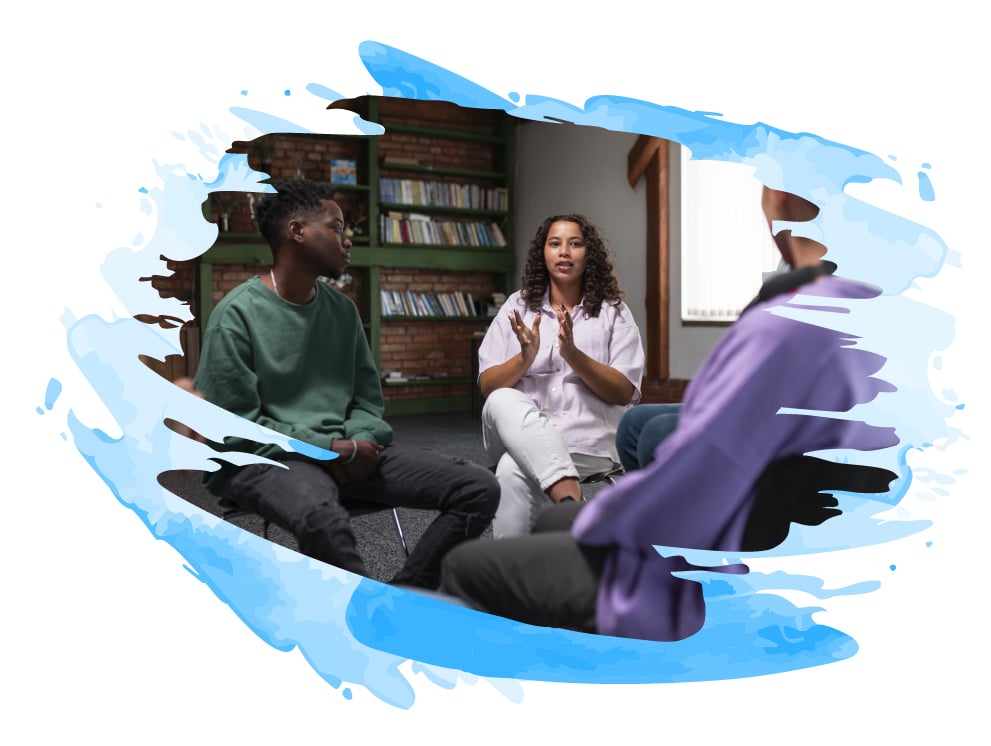For us as young people of color, justice is more than just a legal concept. Justice profoundly shapes our physical health, mental health, and emotional well-being. As I was becoming a young adult, I began to see more clearly where justice and injustice reside. It was sobering to recognize how young people of color like me often faced systemic barriers, discrimination, and various injustices. But this awareness also ignited a fire within me to pursue justice, not just for myself, but for my community.
Research shows that marginalized young adults aged 18-24 are actively participating in socio-political actions to push for justice in their communities, with varying personal impacts.
- The up side: Taking steps toward justice can enhance our sense of empowerment and control, benefiting our mental health. Whether through personal actions, collective efforts, or digital activism, engaging in conversations, self-advocacy, protests, or social media movements can boost our sense of agency and hope.
- The flip side: However, it’s important to recognize that the pursuit of justice can sometimes take a toll on our mental health. Socio-political engagement can lead to challenges such as chronic frustration, sadness, anger, and burnout.
Awareness of these risks and having strategies for self-care and community support is key to protecting ourselves and those we care about.
What Does Science Tell Us?
Those of us with higher exposure to racial discrimination are more likely to engage in activism. While this engagement can serve as a form of self-expression, build community bonds, and promote social transformation, it also increases our vulnerability to emotional costs with an associated health cost. To fully benefit from the empowerment that comes with advocacy and activism while minimizing their toll, we need to find a balance that serves both our needs and those of our communities.
5 Strategies to Achieve as You Pursue Justice
- Set boundaries around your involvement. Not every fight needs to be fought all the time. Set clear boundaries to prevent burnout and ensure that your advocacy and activism remain sustainable.
- Tap into supportive networks. Connect with others who can offer mutual support and help carry the emotional load. Lean on community bonds to share and process the challenges of advocacy.
- Make self-reflection a daily habit. Check-in regularly with your mental health. This practice will help you recognize when you need to step back, pivot or recharge.
- Celebrate every small win! Acknowledge progress, no matter how small. Recognizing these victories helps sustain hope and motivation in the ongoing pursuit of justice.
- Use culturally-resonant healing practices. Incorporate self-care practices that resonate with your cultural background, such as creative expression, community rituals, or mindfulness. These can support emotional processing and resilience.
The Takeaway
Every effort you make to challenge injustice can enhance your personal and community empowerment. Although challenges are part of the journey, you have strategies at your disposal to boost your resilience and well-being. Ready to learn more? Check out the Justice toolkits for practical resources to support you on your journey!
References:
- Prilleltensky, I. (2003). Understanding, Resisting, and Overcoming Oppression: Toward Psychopolitical Validity. American Journal of Community Psychology.
- Gorski, P. C. (2019). Fighting racism, battling burnout: Causes of activist burnout in US racial justice activists. Ethnic and Racial Studies, 42(5), 667-687. https://www.tandfonline.com/doi/abs/10.1080/01419870.2018.1439981
- Zimmerman, M. A., & Eisman, A. B. (2017). Empowering interventions: Strategies for addressing health inequities across levels of analysis. In M. A. Bond, I. Serrano-García, C. B. Keys, & M. Shinn (Eds.), APA handbook of community psychology: Methods for community research and action for diverse groups and issues (pp. 173–191). American Psychological Association. https://doi.org/10.1037/14954-011
- Hope, E. C., Velez, G., Offidani-Bertrand, C., Keels, M., & Durkee, M. I. (2018). Political activism and mental health among Black and Latinx college students. Cultural Diversity & Ethnic Minority Psychology, 24(1), 26–39. https://doi.org/10.1037/cdp0000144
- Santos C. E., VanDaalen R. A. (2018). Associations among psychological distress, high-risk activism, and conflict between ethnic-racial and sexual minority identities in lesbian, gay, bisexual racial/ethnic minority adults. Journal of Counseling Psychology, 65(2), 194-203. https://doi.org/10.1037/cou0000241

